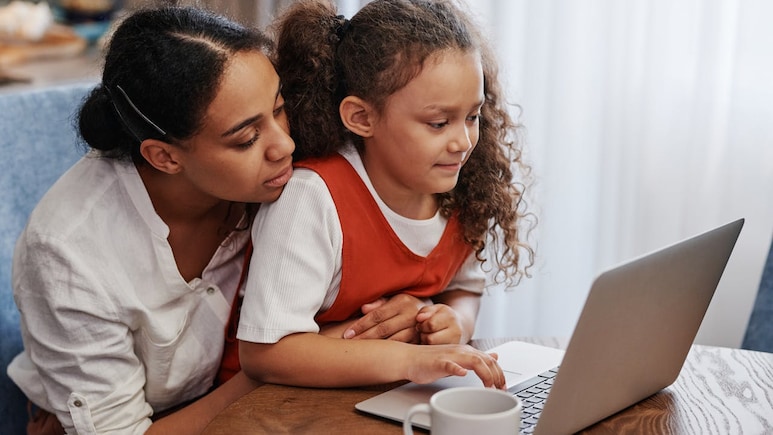
A child's mental health starts to develop long before they go to school. A baby's emotional state can affect them even before they are born. Stress, trauma, or anxiety during pregnancy can have an effect on how the child grows emotionally. After birth, a child's interactions with caregivers, family members, and the environment shape how they understand feelings, deal with problems, and connect with others. These early experiences set the stage for mental health for the rest of your life.
How To Spot Signs In Young Children
When children are having a hard time emotionally, they often show small signs. A child who pulls away from stressful situations, gets upset easily, or acts aggressively may be showing that they are in trouble. Children who see things that are unfair or make them upset but cannot do anything about them can also internalize stress. If these behaviours are not dealt with, they can become bigger problems over time. These patterns can be seen by the time a child is four or five, which is a good time to step in and help.
Why Intervening Before Age 10 Works
Dealing with emotional and behavioural problems early on has long-lasting effects. Children who get help between the ages of four and ten learn how to deal with anger, express their feelings in a healthy way, and build their self-esteem. At ten, it becomes harder to change habits and ways of thinking, so early help is very important. Intervening at the right time makes it less likely that problems will come up later in school, with friends, or with self-esteem.
The Part Parents Play
Parents are very important in shaping their children's emotional health. Children learn how to deal with stress by watching adults. Couples who are getting ready to become parents can benefit from knowing how they feel and how they interact. Parents can learn more about behaviours that their children might copy by going to counselling or therapy. Children learn how to deal with problems when their parents show them how to do it in a healthy way. Children can be affected in ways that are small but long-lasting by parents who are stressed or have unresolved conflicts.
Schools As Safe Places
A lot of the time, children show signs of emotional trouble for the first time at school. Sadly, a lot of schools in India do not have enough help for mental health problems. Some schools have only one counsellor for hundreds of students, while others have none at all. People may think that emotional problems are behavioural problems or a lack of interest in learning. Schools with trained professionals make sure that children have a safe place to talk about their feelings. Talking about emotions, naming feelings, and teaching children how to deal with them are all simple classroom activities that help children learn about themselves and ask for help without being afraid of being judged.
How Screen Time Affects You
Screens are now a part of children' lives all the time. Passive screen use does not help babies and toddlers much. Language, empathy, and social comprehension are most effectively cultivated through direct human interaction, including eye contact, dialogue, and collaborative play. Too much time in front of a screen can make speech slower, attention spans shorter, and emotional understanding less clear. Older children feel pressure from social media, online games, and always being connected. This can make them more anxious and keep them from sleeping. Setting limits on screen time, encouraging children to spend time without devices, and talking to them about what they see online can help keep things in balance and keep their mental health in good shape.

Photo Credit: Pexels
Routines And Support From Friends
Stable routines help children feel secure and emotionally steady. Getting enough sleep, eating regular meals, spending time outside, and enjoying hobbies all strengthen their ability to cope with stress. These habits create a safe and supportive environment. Friends can also be invaluable. Children often talk to their friends first, so teaching students to look for signs of distress and help their friends is a good way to build support networks and a sense of belonging.
Consistency Matters
When adults give their children advice every day, listen without judging, and show them how to deal with stress in healthy ways, trust grows. Children are more likely to share when they know they won't be judged or rushed, but will be heard and helped. When adults pay attention to their children's emotional health on a regular basis, they learn that their feelings are important and that it's okay to ask for help.
Early Help, Stronger Adults
Children who get help early on are better off as adults. People who get help when they are young are better able to deal with schoolwork, keep friends, and deal with stress at work. If you do not get help, emotional problems can cause low self-esteem, problems with relationships, and problems at work. Early help gives children the skills they need to deal with their feelings, learn about themselves, and build strength that will last a lifetime.
Helping children with their mental health can be beneficial for the whole family. When parents understand the way, their child is feeling, they can maintain their calm and respond in ways that really help. How a child manages their feelings is affected by their personality, home life, and friendships. With patient guidance, regular attention, and professional help when needed, kids can grow up to be adults who are confident and emotionally aware.
Support in initial stages makes a big difference. Children who are between the ages of four and ten are especially open to learning how to recognize and deal with their feelings. Before conditions get worse, families, schools, and caring adults can assist them through tough times.
(By Ms Pritika Singh, Mental Health Expert & CEO at Prayag Hospitals)
Disclaimer: The opinions expressed within this article are the personal opinions of the author. NDTV is not responsible for the accuracy, completeness, suitability, or validity of any information in this article. All information is provided on an as-is basis. The information, facts, or opinions appearing in the article do not reflect the views of NDTV and NDTV does not assume any responsibility or liability for the same.
Track Latest News Live on NDTV.com and get news updates from India and around the world

